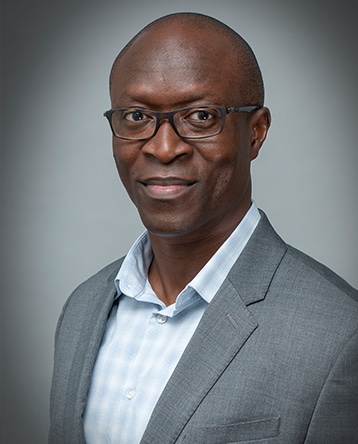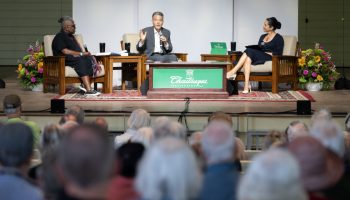
In 2017, years before he joined the faculty at Carnegie Mellon University or was named to the U.S. Chamber of Commerce’s AI Commission, Conrad Tucker was a science and policy fellow at the Atlantic Council. There, he wrote the first in a series of blog posts exploring implications of different policies on the development and deployment of artificial intelligence, machine learning, and cognitive systems. Much, much has happened in the field of artificial intelligence since 2017 blog, and the questions Tucker posed then are ones society is still struggling to answer:
“How should society move forward with data acquisition, management and dissemination as it pertains to cognitive systems?”
“How much should policy makers be involved in these decisions?”
“Will individuals get smarter about the value of their data?”
One question not posed then, but that Tucker will endeavor to explain during his lecture at 10:45 a.m. today in the Amphitheater, is much more straight-forward: How does artificial intelligence actually work?
Tucker, an Arthur Hamerschlag Career Development Professor of Mechanical Engineering with courtesy faculty appointments in machine learning, robotics, and biomedical engineering at CMU, focuses his research on employing machine learning and artificial intelligence techniques to predictively improve the design and output of engineered systems. He’ll provide, from an engineer’s perspective, the actual mechanics of AI and the large language models that drive it: how they were constructed, how they work, and what their potential is — both good and bad. He will also provide insight into the U.S. Chamber of Commerce’s AI Commission on Competitiveness, Inclusion and Innovation, tracking policymakers’ ability to manage the impact of AI on the American economy and society.
His presentation today is programmed in partnership between the CLS and the African American Heritage House Lecture Series; Tucker will speak again at 3:30 p.m. Wednesday in the Hall of Philosophy for the AAHH.
Tucker was appointed to the U.S. Chamber of Commerce’s AI Commission upon its creation in 2022, joining AI experts from academia and both public and private sectors.
“The establishment of this commission is extremely timely, as AI becomes more integrated into our lives. It is therefore critical that the voices and input from people across society be reflected in the U.S. vision and strategy for AI,” Tucker said in 2022. “The involvement of academia, industry and government in this effort highlights the multidisciplinary perspectives that are needed to advance AI strategies that maintain U.S. leadership in this domain.”
A year later, the commission issued a report with four major findings. According to the report, over the next two decades, virtually every business and government agency would be using AI, with profound impacts on society, the economy, and security. AI would mean advances in customer service and productivity gains — and new security threats — so failure to regulate the technology could harm the economy, diminish individual rights, and hinder the development of new technologies.
The report also found that the United States was uniquely situated to lead the AI effort, and that policies and laws for the development of responsible AI and its ethical deployment must be a top priority for the current presidential administration and Congress, and for all future ones.




